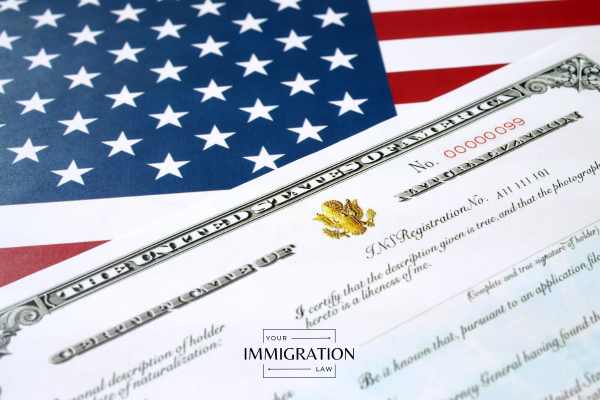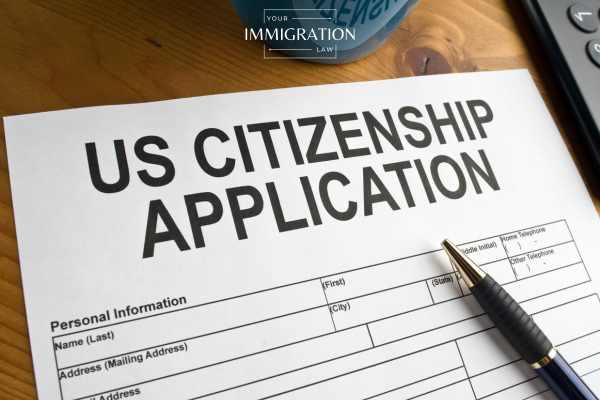Understanding the process of naturalization is all about learning how someone can become a U.S. citizen. It’s a big step for people who have been living in the U.S. with a green card and are ready to call the United States their home officially and get their American dream.
The citizenship through naturalization process involves meeting certain requirements, like living in the U.S. for a specific number of years with continuous residence, passing a citizenship test, and taking an oath of loyalty.
It might sound a bit complicated, but with the right information and help, anyone can navigate the steps and achieve their dream of becoming a U.S. citizen. To get help through the process call our firm at 313-631-8080 to discuss how we can help you obtain citizenship.
Eligibility Requirements for Citizenship in the U.S.
To become a United States citizen through naturalization, there are a few basic requirements for citizenship you need to meet. First, you have to be at least 18 years old and have lived in the U.S. as a permanent resident (which means having a green card) for a certain number of years—usually 5 years.
During this time with your permanent resident status, it’s important to have what's called "good moral character." This means following the law and being a responsible member of your community. You’ll also need to show that you’ve been physically present in the United States for at least half of that time and be able to speak, read, and write basic English.

There are also some specific requirements depending on your situation. For example, if you’re married to a U.S. citizen, you might be able to apply for citizenship after just 3 years of being a permanent resident. If you’re serving in the U.S. military, special rules could make you eligible for citizenship even faster. Having citizen parents can also help to speed up the path to citizenship.
In some cases, you can apply without getting permanent residency first. Working with an immigration law attorney will allow you to know all of your options and avoid any legal issues with your application for naturalization.
The Citizenship and Naturalization Application Process
The application process for citizenship, also known as naturalization, starts with filing a form called the N-400. This form is your way of telling the U.S. government that you’re ready to become a citizen. You’ll fill out details about yourself, like where you’ve lived, your work history, military service record, green card holder record, and anything else the U.S. Citizenship and Immigration Service asks.
Once you’ve sent in the N-400, you’ll be scheduled for a biometrics appointment, where they’ll take your fingerprints and a photo. This helps the government do background checks to make sure everything is in order.
After the biometrics appointment, the next big step is preparing for the citizenship interview and test. During the interview, an immigration officer will ask you questions about your application and check to see if you meet all the requirements. You’ll also take a test on U.S. history and government, and you’ll need to show that you can speak, read, and write basic English.
Don’t worry, though—there are lots of resources to help you study and get ready! Once you pass the interview and test, you’ll be scheduled for a ceremony where you’ll take an oath of allegiance, and then, just like that, you’ll officially be a U.S. citizen!
Citizenship Test and Interview
The citizenship test and interview are important parts of the naturalization process. While they might seem a little scary, knowing what to expect can make them much easier.
During the naturalization interview, an immigration officer will ask you questions about your application to make sure everything is correct and that you meet the requirements to become a United States citizen.
You’ll also take the English test. You’ll need to show that you can speak, read, and write basic English, and the civics test, which covers U.S. history and government. To prepare, it’s a good idea to study with practice materials and take mock tests to get comfortable with the questions.
An immigration attorney can also help by going over potential questions with you and making sure you’re fully ready for the big day. With some preparation, you’ll be ready to ace the test and interview and take the next step toward becoming a U.S. citizen!
The Role of a Citizenship and Naturalization Lawyer
A citizenship and naturalization attorney plays an important role in helping you become a United States citizen. An experienced immigration attorney will guide the entire application process, making sure you know what to do at each step. If your case is a little tricky or if you run into any problems, like needing to appeal an immigration decision, the lawyer can represent you and help sort things out with their extensive experience.
They’re also really helpful with preparing and submitting all the necessary documents, making sure everything is filled out correctly and on time. With a lawyer’s support, the process becomes much easier and less stressful.
Dual Citizenship Considerations
When thinking about dual citizenship—where you’re a citizen of two countries at the same time—there are a few important things to consider.
Some countries, like Canada and the U.K., allow dual citizenship with the United States, which means you can be a citizen of both places. However, having dual citizenship can sometimes lead to conflicts, like needing to follow the laws and obligations of both countries, such as serving in the military or paying taxes.
IMAGE 2

Speaking of taxes, dual citizens might have to file tax returns in both countries, which can be a complicated process. It’s important to understand these responsibilities and how they might affect you before deciding to pursue dual citizenship. Speaking to experienced immigration lawyers from both countries can help you decide whether or not to pursue dual citizenship.
FAQs
- How long does the naturalization process take? The citizenship process usually takes about 6 to 12 months, but it can vary depending on your case and how long each step of the citizenship application process takes.
- What happens if I fail the citizenship test? If you fail the citizenship test, you’ll have another chance to take it a few months later. There are multiple study guides available online that can help you ace that aspect of your naturalization application the next time around.
- Can I apply for citizenship if I have a criminal record? Yes, you can apply, but having a criminal record might make it harder to get approved, and it’s a good idea to talk to a lawyer. They will be able to advise you based on your specific criminal conviction and guide you through the application for naturalization.
- Is it possible to lose U.S. citizenship after naturalization? It’s rare, but you could lose U.S. citizenship status if you commit serious crimes like fraud during the naturalization process or if you voluntarily give it up. If you are concerned about a particular citizenship requirement, an experienced attorney can advise you on what to do in your specific situation.
Start Your Journey to Citizenship with Confidence
Becoming a U.S. citizen is a big and exciting step, but the process can be tricky with lots of forms, interviews, and rules to follow.
Having a great citizenship lawyer by your side can make everything easier because they know the ins and outs of the process and can help you avoid mistakes. They’re there to guide you, answer your questions, help you prepare for the naturalization interview, and make sure you’re on the right path to reaching citizenship through naturalization.
With the right legal help, you can feel confident that you’re doing everything you need to do to become a U.S. citizen! Contact our law offices today for an initial consultation and get started on the path to citizenship.